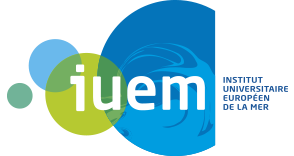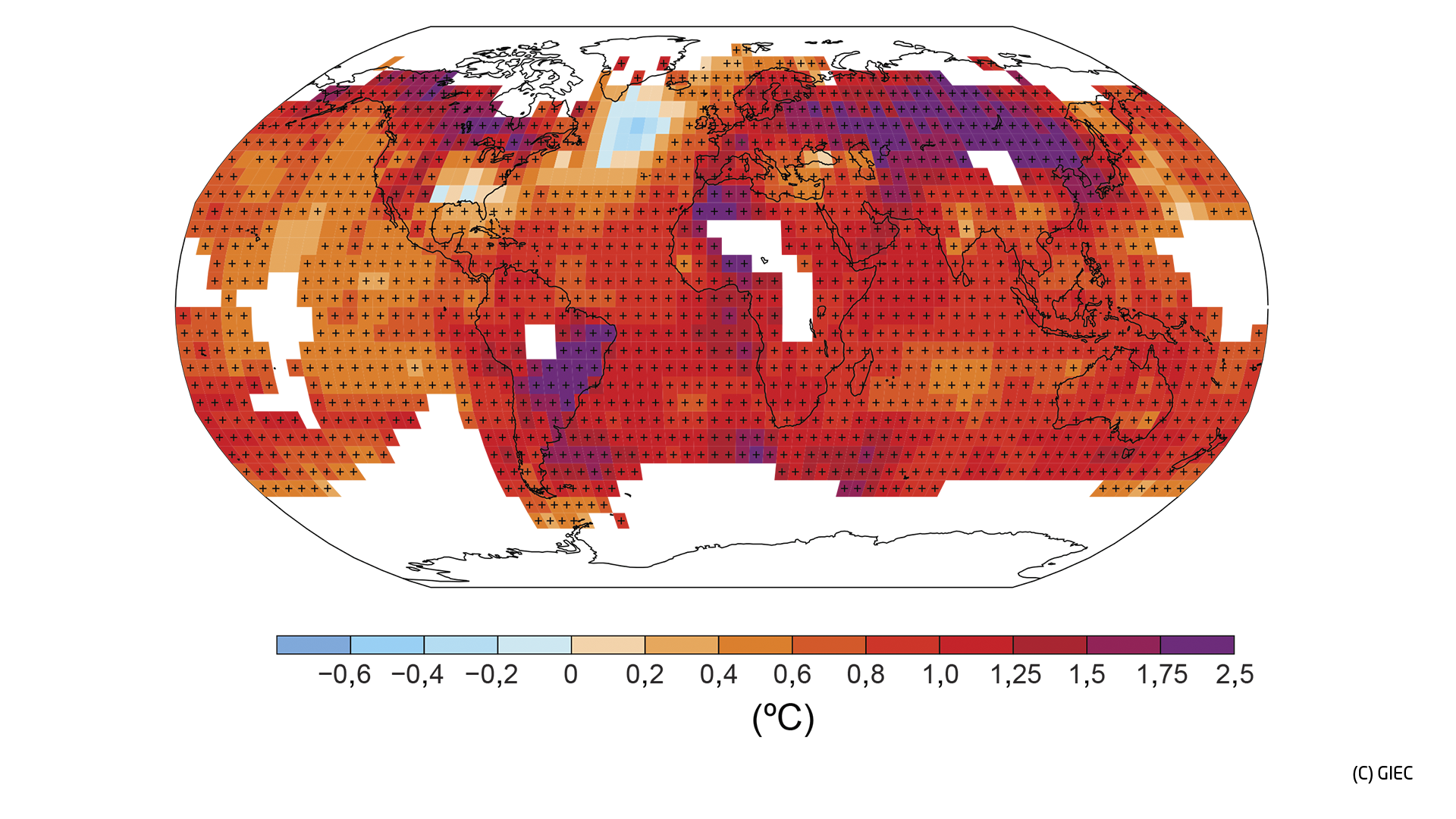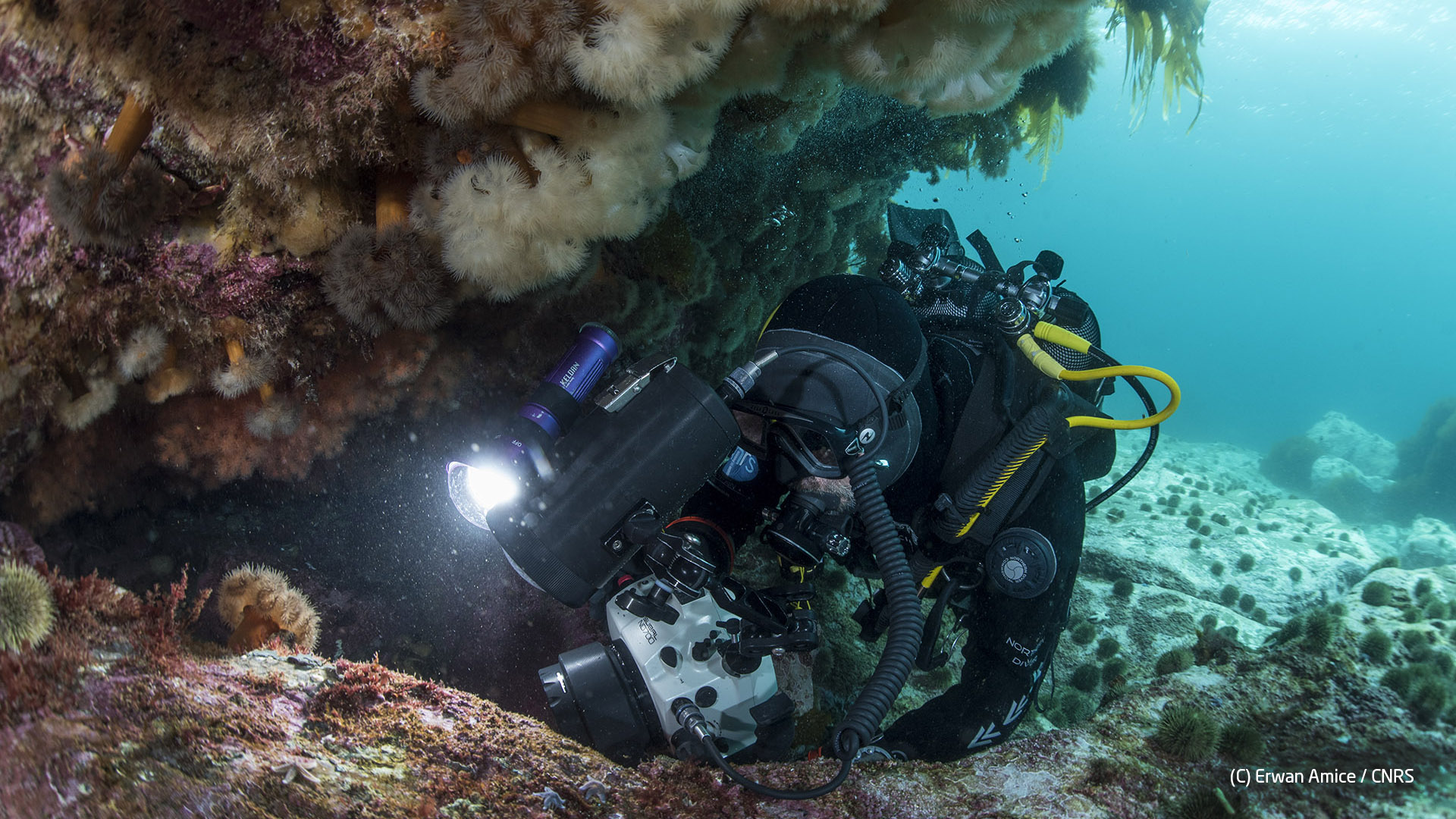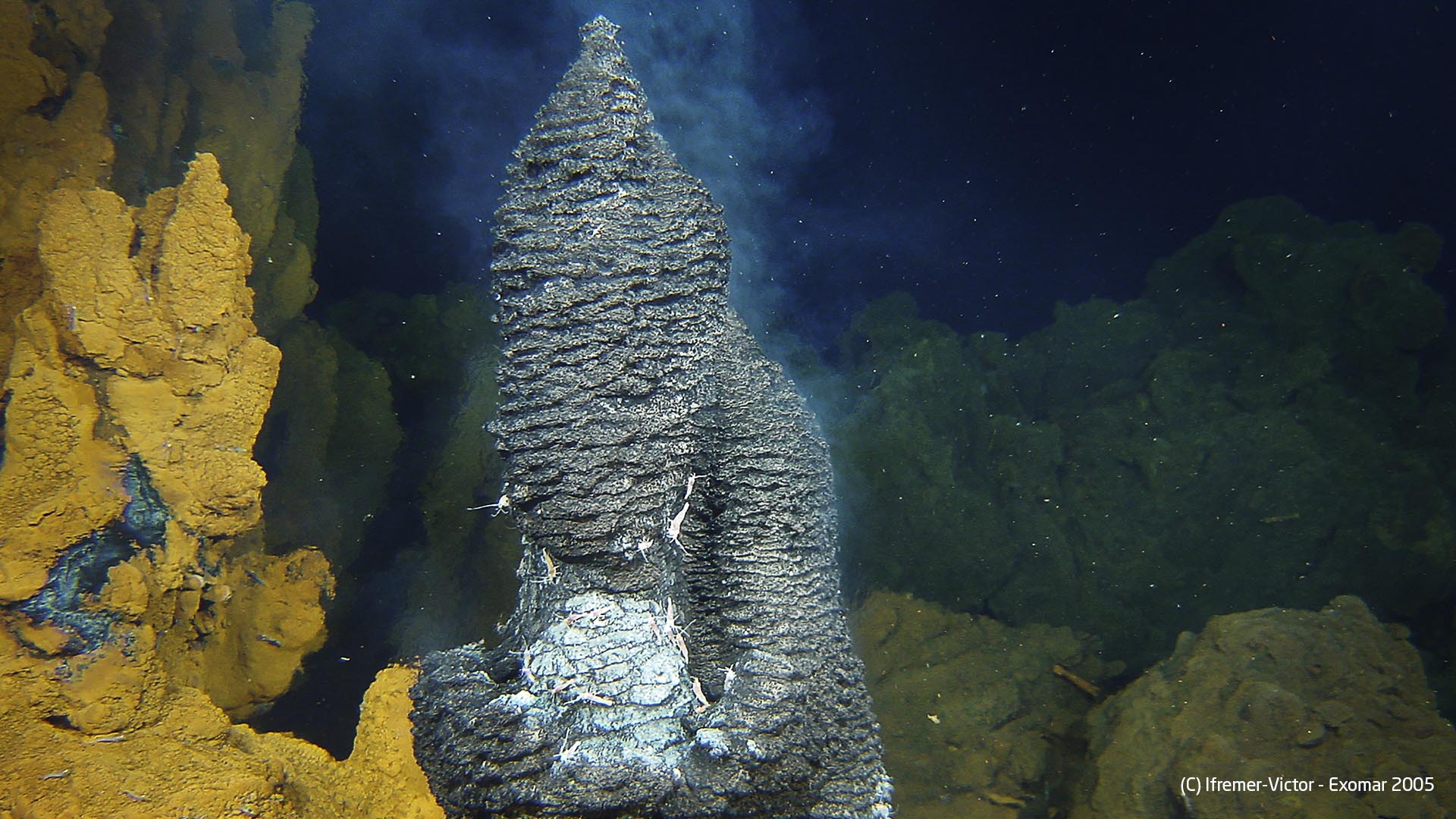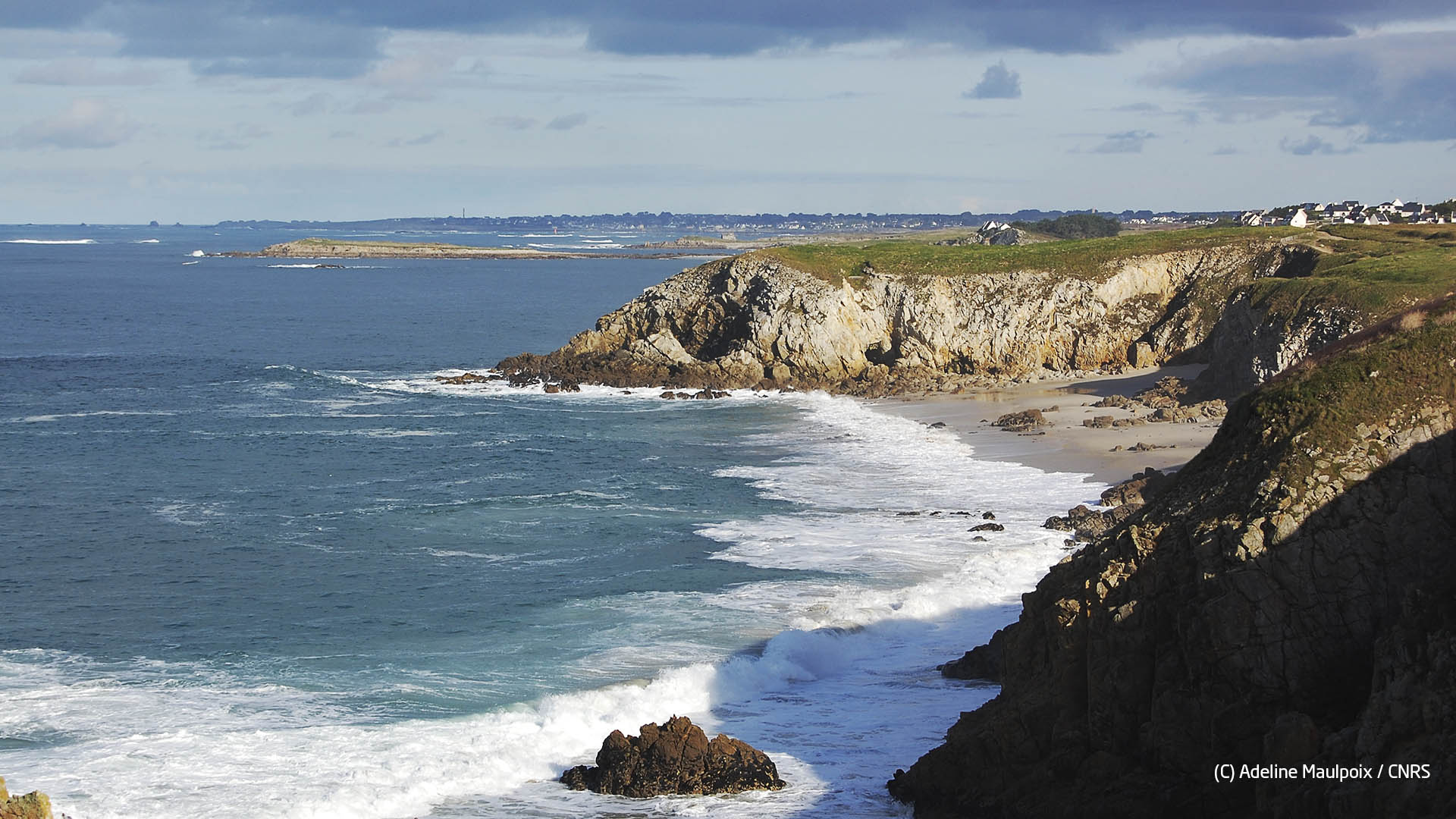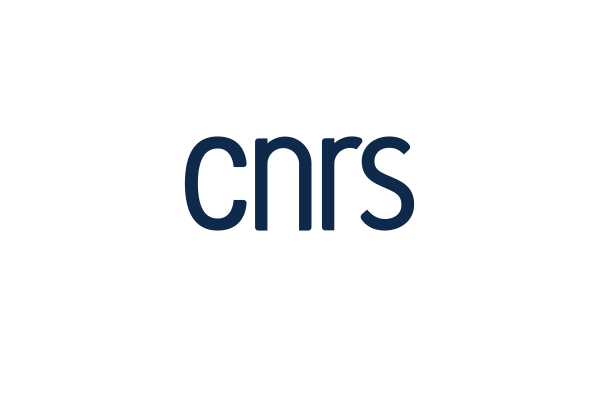IUEM research units project can be presented very schematically in four main topics, broken down into objects and processes that researchers wish to better understand.
The ocean, a key actor in the biogeochemical cycles and climate of our planet
- Ocean warming and circulation in the past, present and future
- The chemical composition of ocean (especially trace metals) and major cycles: ocean acidification, deoxygenation, carbon cycle, pollution (e.g. heavy metals)
- Energy cycles, scale interactions and physical-biological coupling: from ocean turbulence < 1 km, to large eddies > 100 km and the global ocean
- The economic and legal challenges of global ocean change (warming, acidification)
Marine ecosystems and biodiversity
- Physiological and adaptation processes of marine organisms
- Properties of marine molecules, e. g. biofilms
- Functioning of ecosystems and food webs
- Cumulative impacts of exploitation pressures and biological and physico-chemical factors on the dynamics of exploited species and communities
- Ecological, economic, social and legal determinants of the development of human activities such as fishing or aquaculture
Still unexplored oceanic depths
- Deep-sea and ocean margin dynamics, associated earthquake risks, and mineral resource formation
- Earth Mantle Dynamics and Continental Growth
- Economic and legal stakes related to ocean domains
- Micro-organisms in extreme deep-sea environments and hydrothermal springs
The coast, a complex and fragile interface
- Physical processes in the coastal domain and at the land-sea interface, including interactions with atmosphere
- Coastal territories, their dynamics and their vulnerabilities, both physical (remote sensing, geomatics approaches) and human (societies evolution, uses)
- Public policies Analysis and evaluation and development of tools and scenarios to assist collective choices for coastal development
